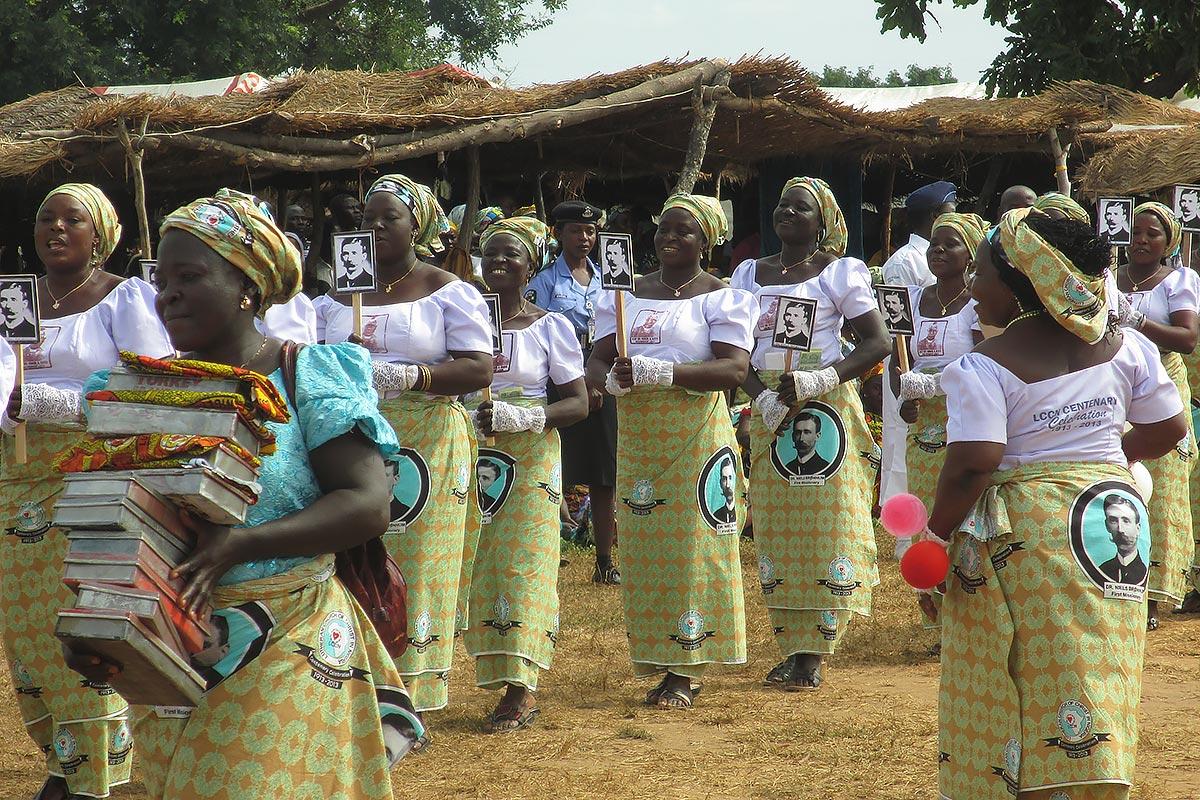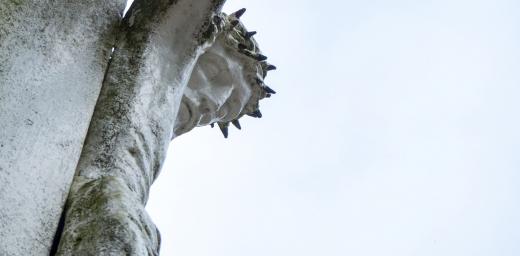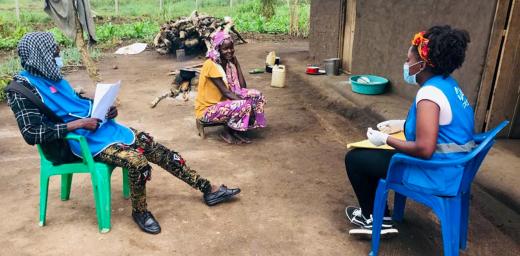Lutheran Church of Christ calls for an end to violence in Nigeria

A group of LCCN women during the centennial of the church. Photo: LWF/ LCCN/ Felix Samari
High victim toll because of attacks on farmers
(LWI) - The Lutheran Church of Christ in Nigeria (LCCN) leadership urges an end to the violence in Nigeria. A communiqué from the LCCN bishop’s council and executive council condemns the increased attacks of Fulani herders on farmer communities. Last year the violence claimed more lives than the Boko Haram insurgency, the communiqué states. The church calls for urgent intervention and support from the Nigerian government and the international community.
“Our profound recognition of the sanctity of life and full knowledge that life must be protected not destroyed at will, informed our decision to issue this communiqué,” the statement issued on 23 January 2018, reads. “We out rightly abhor any act of violence and destruction of life.”
The communiqué follows an escalation of conflicts in Nigeria. Fulani herders have moved from the arid north of Nigeria to the more fertile middle belt states such as Adamawa, Taraba and Benue states, and the southern regions, which are known as the breadbasket of the country, and threatened the livelihoods of farming communities, many of whom are Christian.
Violent attacks
During 2017 Nigerian churches, as well as international human rights observers watched with growing concern how these communities were violently attacked. The latest attacks in a village in Benue state in early January 2018 left 73 people dead. With communities razed and buildings destroyed, the state emergency agency says 40,000 people have been displaced.
I call upon farmers and herdsmen to break their swords and embrace dialogue in overcoming any misunderstanding towards peaceful co-existence.
Since November last year it is estimated that over 5,000 people have been killed, the communiqué states.
While expressing condolences to victims and those affected by the violence, the communiqué asks: “Where then are we headed as a nation when we only hear of attacks literally on daily basis?”
LCCN is among the churches most affected by the conflict, as it has the largest concentration of its members in the north-eastern region of Nigeria. The violence was a topic at the assembly of the Fellowship of Christian Churches in Nigeria (Tarayyar Ekklisiyoyin Krista a Nijeriya, TEKAN), an ecumenical association of 12 churches of which LCCN is a founding member.
Double victimization
Together with other churches in the region, LCCN in the past years has suffered from the violent attacks of the Boko Haram insurgency. The latest attacks have added to the fear of Christians in the region. We “no longer feel safe whenever and wherever we gather for our religious activities,” the communique states.
Already in November, the Archbishop of the LCCN Panti Filibus Musa called upon “farmers and herdsmen to break their swords and embrace dialogue in overcoming any misunderstanding towards peaceful co-existence.” Addressing the bomb blast in a mosque in Mubi he condemned “this kind of wanton destruction of human life”.
While reminding the Nigerian government of “its responsibility to protect life” the LCCN and other Nigerian churches call upon the government to “swing into more concrete action,” increase security to end the killings, address the root causes of the problem and bring the perpetrators of these attacks to justice. They also call upon the African and European Union, the United Nations system, human rights organizations and the global ecumenical family to stand with those affected by the attacks and support their efforts for peace.
“We commit as a church to remain faithful to our mission of speaking truth to authority and contributing our quota to promoting justice and peace in society, human wellbeing and care for creation,” the statement concludes.
Ojot Ojulu, LWF Interim Assistant General Secretary for International Affairs and Human Rights, “committed prayers and said the LWF closely accompanies the church as it continues advocating for peace, justice and the protection of human life.”





